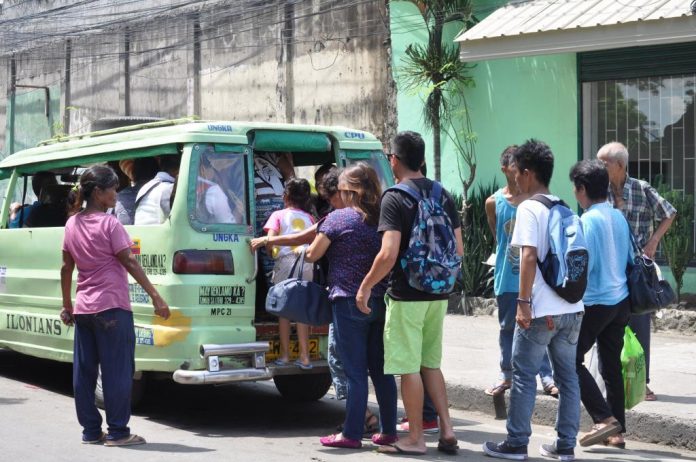
ILOILO City – The Iloilo City Police Office (ICPO) has agreed to help the city government’s Public Safety and Transportation Management Office (PSTMO) run after barkers – persons who “call for, facilitate, induce or convince commuters to board a particular or preferred public utility vehicle such as a jeepney, taxi, van, and bus for the purpose of extracting an amount from the vehicle’s driver.”
Regulation Ordinance No. 2014-194 makes it unlawful for any person to loiter in public places, open parking spaces and designated loading and unloading areas, and intermittently perform and act as barker even with prior consent from the driver or any transport organization.
The city government came up with Regulation Ordinance No. 2014-194 five years ago due to complaints about barkers harassing jeepney drivers who did not give them money.
A violator could be jailed for a minimum of three months but not more than six months.
PSTMO chief Jeck Conlu sought the city police’s assistance in enforcing the ordinance, said Police Colonel Martin Defensor, ICPO director.
Barkers may be apprehended by the police or through citizen’s arrest.
Regulation Ordinance No. 2014-194 makes a clear distinction between barkers and legitimate “dispatchers.”
It defines dispatchers as persons authorized or accredited by transport groups to facilitate the boarding of commuters to public utility vehicles at transport terminals.
Section 4 of the ordinance stipulates that a transport group shall be allowed to employ dispatchers with proper identification cards and duly signed by the transport group’s president.
A dispatcher also manages and supervises the parking and sendoff of the public utility vehicle in an orderly fashion within the designated parking area but without collecting any fee from the driver.
In August last year, Conlu proposed the legitimization of barkers. He said they may be trained then accredited by the city government as dispatchers or parking attendants.
Accredited barkers could be stationed in identified jeepney loading and unloading areas across the city, he proposed.
“The training would include teaching the barkers how to handle traffic congestions until such time traffic auxiliaries arrive,” added Conlu.
But for this to be realized, Regulation Ordinance No. 2014-194 must be amended, and no city councilor has shown interest to do so.
During the administration of then mayor Jed Patrick Mabilog prior to the enactment of Regulation Ordinance No. 2014-194, the city government tried stopping barkers by giving them a livelihood assistance of P5,000 each.
Such approach apparently proved ineffective. The barkers returned to the streets./PN



